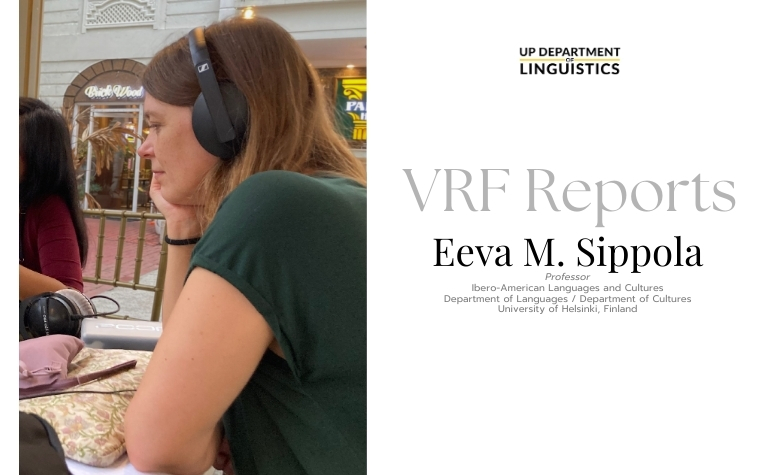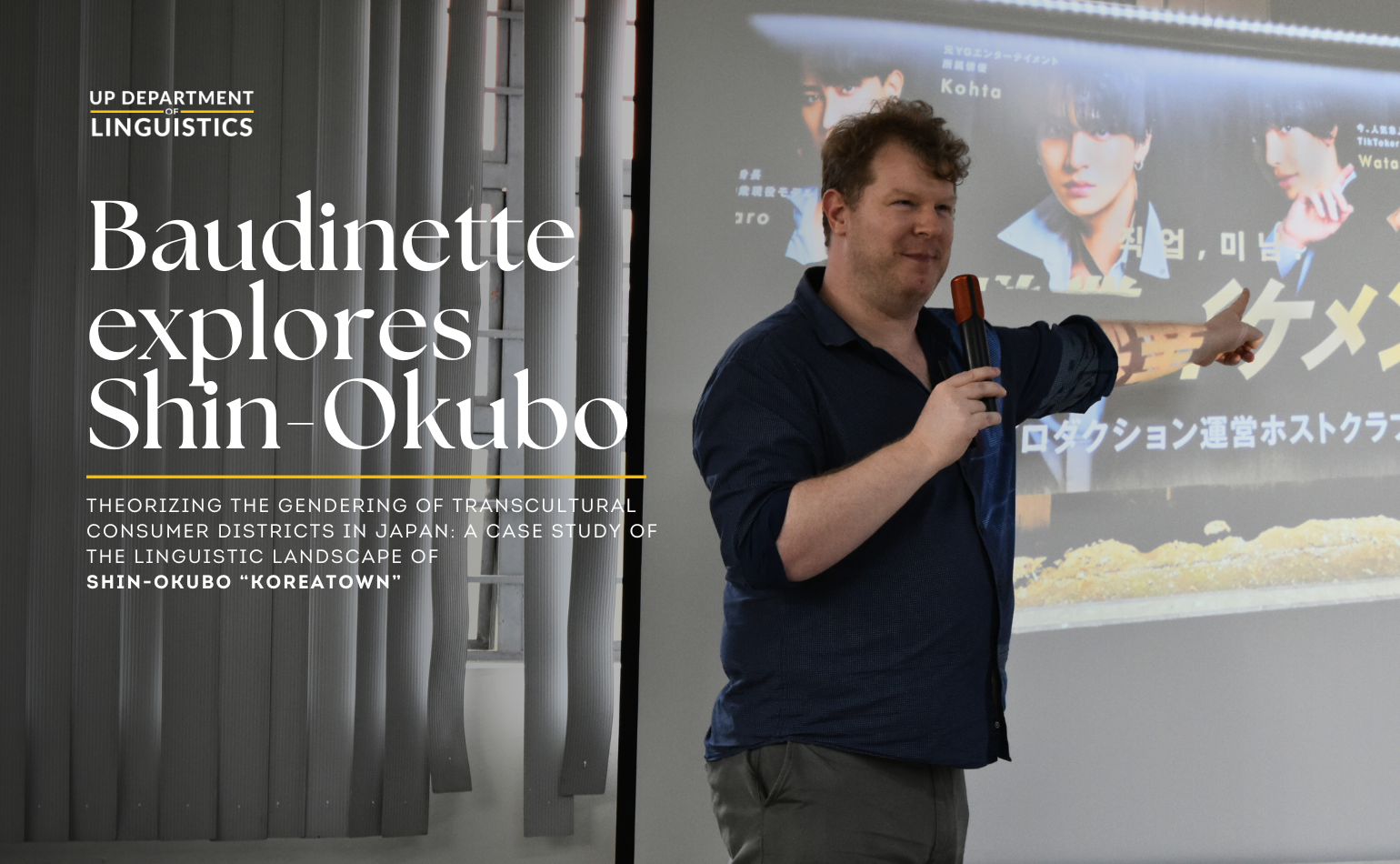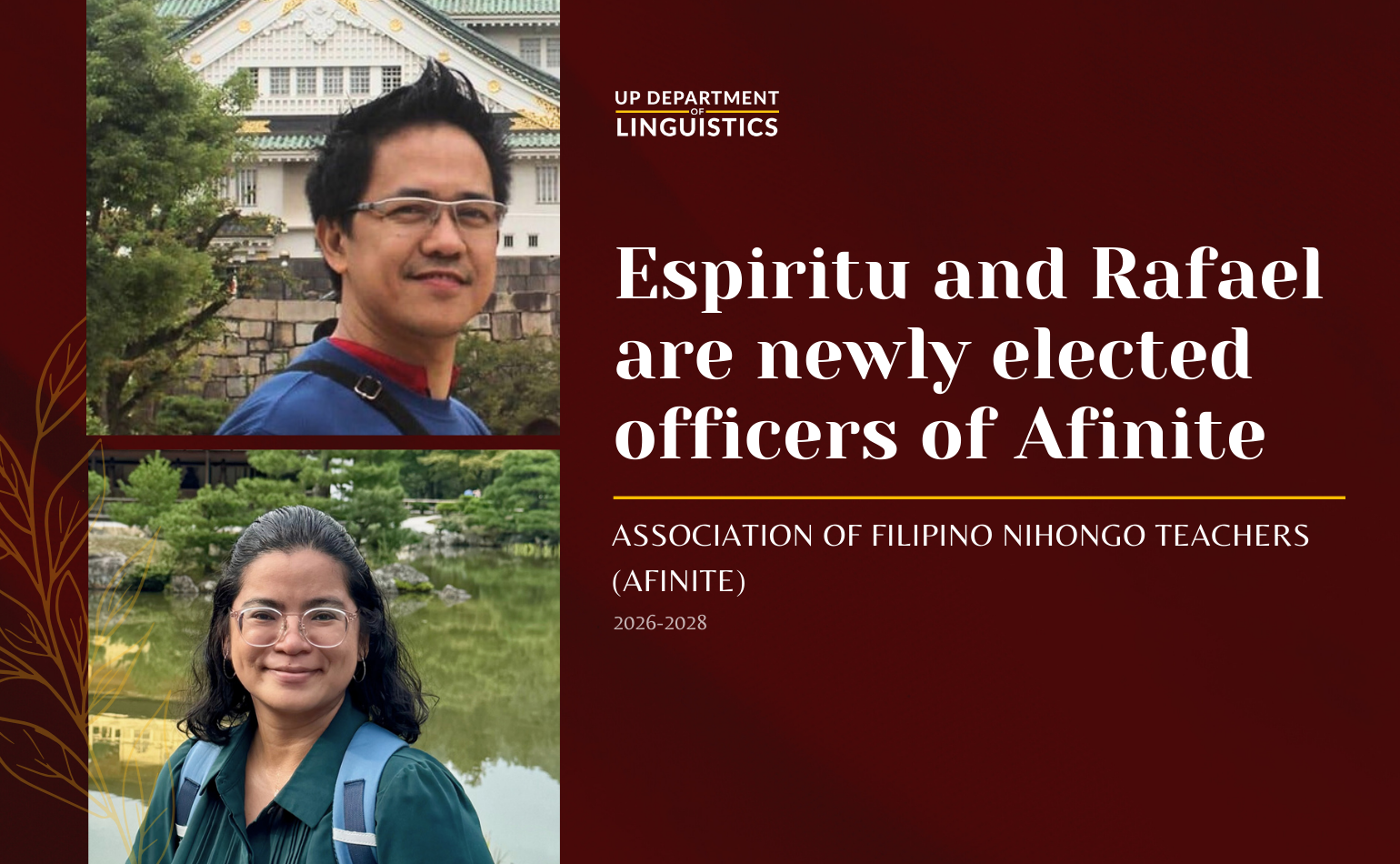
The Department held the first edition of the Tóngtongan colloquium online via Zoom last 03 December, serving as a platform for presentations of Linggwistiks ng Pilipinas (LinggPil) 390 students where they examined selected contemporary problems in Philippine linguistics with the aim of encouraging public engagement to these issues. The title of the event is a Pangasinan word that means ‘usapan,’ which encompasses this goal.
The first presenter was Kenichiro Kurusu, senior lecturer at the Department and a PhD student from the Department of Filipino and Philippine Literature (DFPP), whose presentation was titled, “The development of Filipino in the eyes of a foreign language learner/educator.” Through this, he brought up the challenges that he personally experienced while learning and teaching Filipino to Japanese students. These challenges include: the gap between the prescriptive orthography released by the Komisyon ng Wikang Filipino (KWF) and that of the general public, the insufficiency of available materials, the lack of a standardized language proficiency test, and the limited number of fields in which Filipino is used.
Kurusu ended his presentation with recommendations on how to overcome these challenges, including ways in which Filipinos and the Philippine government could help, such as the creation of a vision for Filipino as a foreign language, production of more instructional materials, and expansion of the fields and media in which Filipino is used.
His presentation was then followed by that of Asst. Prof. Francisco C. Rosario, Jr., who currently teaches Bahasa Indonesia/Malaysia (BIM) and linguistics courses, and conducts research about Pangasinan language. The presentation was titled, “Disappointed but not Surprised: Understanding the ‘Failure’ of the MTB-MLE Policy.” He gave a recap of what happened last October, when the government passed Republic Act 12027 as a law, thereby “discounting” the use of mother tongue as medium of instruction from Kindergarten to Grade 3. He also discussed the history of policies related to MTB-MLE, its implementation and findings of studies related to it, as well as the community’s attitude towards it.
Rosario concluded his presentation by stating that it was too early to assess whether MTB-MLE was successful or not, emphasizing that it is unfair to say that the policy failed, because it was the government who had shortcomings as they oversaw its implementation.
Discussant Assoc. Prof. Maria Mercedes “Ched” Estigoy Arzadon, one of the founding members of Talaytayan MLE, a nongovernment organization that promotes MTB-MLE in the Philippines through advocacy, policymaking, teacher training, and materials development, shared her own insights with regards to the two presentations. She discussed how the implementation of the policy in some regions was good because of the efforts that teachers poured into the development of materials for their students, and how these teachers felt as if their efforts were disregarded. During her talk, she also mentioned that the hegemony of the English language especially made MTB-MLE’s implementation in the Philippines difficult. Despite the heavy atmosphere, however, Arzadon had high spirits and emphasized how the fight was not over, and that this was “a journey that will go beyond our lifetime.”
The colloquium ended with closing remarks from Department Chairperson Maria Kristina Gallego, as well as a Q&A portion.
Published by Patricia Anne Ocampo



